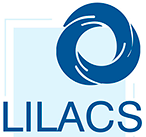Efecto del consumo de un extracto fibroso de tallos de stevia rebaudiana sobre la glicemia
DOI:
https://doi.org/10.19136/hs.a21n2.4707Resumen
Objetivo: Evaluar el efecto de la ingesta de un extracto fibroso de tallos de Stevia rebaudiana Bertoni sobre los niveles de glicemia postprandial en sujetos sanos.
Materiales y Métodos: Investigación transversal, experimental, realizada con condiciones éticas de consentimiento y confiabilidad, en el laboratorio de Evaluación del Estado Nutricional de la Universidad Autónoma del Carmen. Para la valoración clínica y antropométrica de los participantes se utilizó una historia clínica y escáner de composición corporal, respectivamente. La población de estudio fue conformada por 16 mujeres sanas con índices de masa corporal normales (20-25 kg/m2). Instrumentos: a) Expediente clínico-dietético y b) Datos bioquímicos obtenidos de la toma sanguínea obtenidos en los diferentes tiempos. Se realizó el análisis de los datos con estadística descriptiva.
Resultados: Los resultados mostrados en el grupo de participantes en este estudio, se observó que el valor medio del área bajo la curva (AUC) de la glucosa fue de 709.18 ± 23.60, mientras que el del extracto fibroso de tallos de stevia fue de 556.59 ± 50.47.
Conclusiones: Los tallos de Stevia rebaudiana Bertoni. por su contenido en fibra dietética, pueden ser una alternativa para el uso y revalorización de residuos sostenidos en la economía circular en el desarrollo de productos funcionales, otorgándole un valor agregado que contribuye de alguna manera a reducir el sobrepeso y la obesidad, con efecto hipoglucemiante en pacientes con diabetes mellitus (DM) tipo 2.
Palabras clave: Stevia ; Tallos de la planta ; Glucemia
Descargas
Publicado
Número
Sección
Licencia
Derechos de autor 2021 Horizonte Sanitario

Esta obra está bajo una licencia internacional Creative Commons Atribución-NoComercial-CompartirIgual 4.0.





























